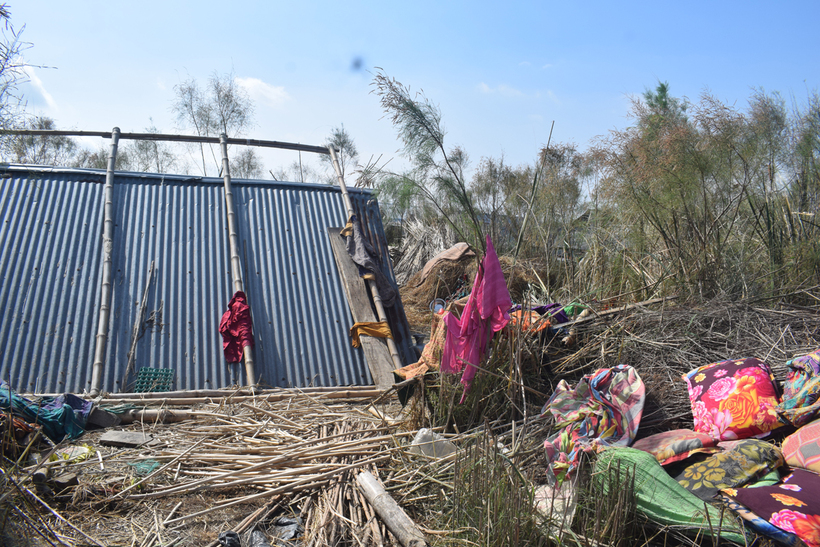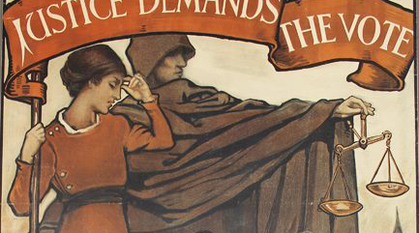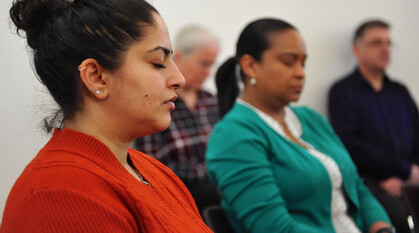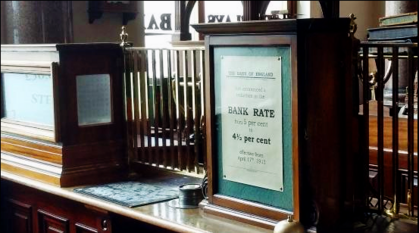Will COP27 deliver a loss and damage fund?
The COP27 climate talks start on Sunday 6 November. Olivia Hanks examines where action for a loss and damage fund has got to since COP26.

The next chapter in the struggle for loss and damage finance is about to take place in Sharm El-Sheikh, Egypt. Thanks to the ongoing efforts of campaigners and Global South countries, the issue is on the provisional agenda for COP27. This still has to be agreed by parties at the beginning of the summit, but there appears to be little appetite for a long argument over the agenda.
Ahead of COP27, the Loss and Damage Collaboration published a paper on the costs of delay. It highlights the numerous proposals put forward by climate-vulnerable countries over the last 30 years to address loss and damage, and the excuses used by wealthy countries to delay action. The paper, which was endorsed by 24 organisations including Quakers in Britain, also notes that "in the first six months of 2022 alone, just six major fossil fuel companies made enough in profits to cover the costs of economic losses from extreme weather events in developing countries three times over".
What has happened since COP26?
COP26 ended with drama and then disappointment. The G77 + China group – representing around 85% of the world's population – put forward a late proposal for a loss and damage finance facility, which was then rejected by the US, the EU and Australia. Instead, we ended up with the 'Glasgow Dialogue' on loss and damage finance, a three-year process with no clear promise of an end result.
Global South countries, charities and campaigners are calling for a finance facility to be agreed at COP27, arguing that the Dialogue is just another talking shop to delay action yet again. The Alliance of Small Island States (AOSIS) has built on the COP26 proposal to draw up plans for a loss and damage response fund. In Europe, there are glimpses of a shift in position: Denmark recently became the first central government to pledge finance for loss and damage, while the European Parliament has passed a resolution acknowledging that more money is needed.
The official EU position is that loss and damage can be dealt with through existing financial mechanisms. The bloc is working on a package of financing options, including a 'Global Shield' designed to strengthen disaster risk finance and insurance – but with no new money attached. This proposal is supported by the Climate Vulnerable Forum, which has stressed it is only one piece of the puzzle on loss and damage and does not replace the need for a new facility. It remains to be seen whether the EU's proposed measures are a bridge across the chasm that has so far divided rich and poor countries on loss and damage, or just another way to avoid putting up the money that is needed.
The UK government, meanwhile, has been fending off an increased number of Parliamentary questions about loss and damage finance by referring to the Glasgow Dialogue, essentially telling us to 'wait and see' what that three-year process yields.
As the world moves towards consensus that loss and damage cannot simply be ignored, we will increasingly see questions about where the money can be found. Quakers in Britain are working with the Quaker United Nations Office (QUNO) on a paper outlining several possible sources of funding. This is intended for negotiators and politicians who are not experts on loss and damage and need a brief summary of possibilities. The paper will be available in draft form at COP27 for people to comment on, with a final version to follow next year.
Witness for climate justice
It's hard to accept that one year on from COP26, with climate chaos visibly escalating, so little progress has been made. As ever, we can't simply wait and hope for the COP process to deliver the action we need. As much as anything, the talks are an opportunity to put the climate crisis back on the news agenda and for our movement to come together on the streets of our towns and cities.
COP27 meeting for worship, 5 Nov
This Saturday, 5 November, on the eve of COP27, we will be meeting in worship at 16:00 GMT on Zoom, to hold in the Light all those whose lives have been shattered by climate breakdown, and those who continue to struggle for a just and peaceful world.
Register to join the meeting for worship.
Interfaith Talanoa Dialogue, 6 Nov
On 6 November from 15:00 GMT, the Interfaith Liaison Committee (ILC) to the UNFCCC is hosting an interfaith Talanoa Dialogue to reflect and explore solutions from different angles. This gathering will offer an opportunity to create an Interfaith Talanoa Call to express concerns, demands and hopes to be delivered to the UNFCCC Executive Secretariat.
Register to take part in the small group discussion.
Global Day of Action, 12 Nov
In solidarity with the Global Day of Action called by Egyptian groups at COP27, on Saturday 12 November Quakers will be part of the Global Day of Action for Climate Justice. All are welcome to join us in London starting at St John's Church, Waterloo at 11:30, or join in elsewhere in the country – find your nearest action here.


